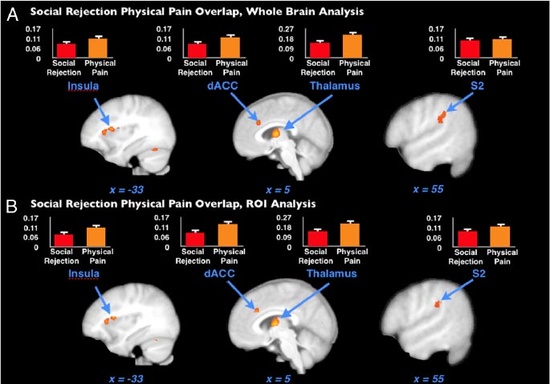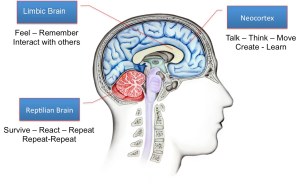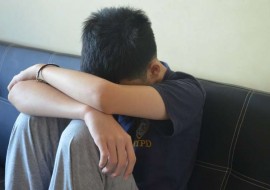Physical pain and emotional pain share the same spots in our brains.
Check out this article entitled, “Social rejection shares somatosensory representations with physical pain” by Kross et al. For non-geeks, here’s my summary: Researchers studied the brains of 40 adults (21 women, 19 men) who had been rejected by a romantic partner within the previous six months. Using functional MRI imaging, they compared the location of brain activity that occurred while the research participants experienced physical pain (heat applied to the forearm just below their pain tolerance) and while they experienced emotional pain (seeing a picture of the rejecting partner and remembering how it felt to be rejected). The same brain regions were activated with both types of pain, and the authors concluded that “…intense social rejection may represent a distinct emotional experience that is uniquely associated with physical pain” (p. 4). In essence, “hurting” after an unwanted breakup is not simply a metaphor.
Link to article: http://www.pnas.org/content/early/2011/03/22/1102693108.full.pdf
Share this post






